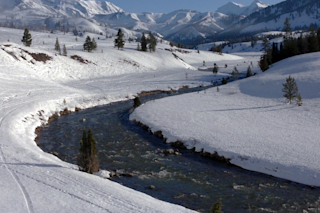One cold day in February 2015, Oklahoma Senator James Inhofe brought an unusual prop to the Senate floor: a snowball. The point of the stunt was to demonstrate that the cold spell the nation’s northeast was then enduring was proof that global warming wasn’t happening.
Most people had a good laugh at Inhofe’s expense. The then-chairman of the US Senate Committee on Environment and Public Works should have known better (and maybe he did, but the notorious climate-change denier counted on a lot of us not really knowing). But what exactly should he have known? Why does one or even a few extreme winters not refute the evidence of a warming planet? Lots of intelligent non-climate-change deniers might well wonder that, too. Because what we’re talking about is the difference between weather and climate, and while that difference is pretty straightforward, it’s not always intuitive. Our lifetimes and attention spans ...















